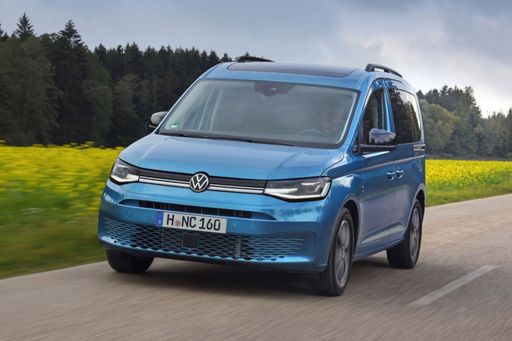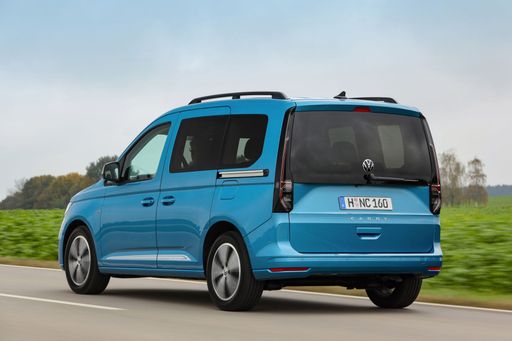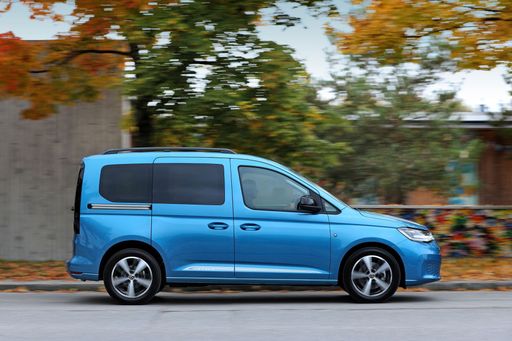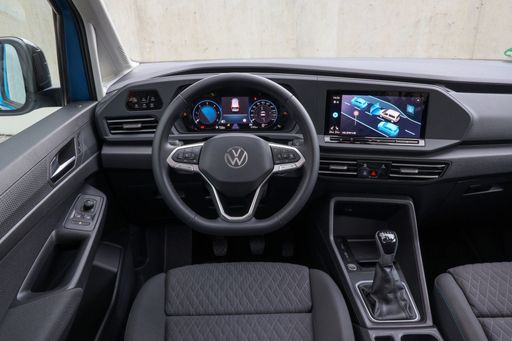Renault Express vs VW Caddy - Differences and prices compared
Compare performance (102 HP vs 150 HP), boot space and price (17100 £ vs 27800 £ ) at a glance. Find out which car is the better choice for you – Renault Express or VW Caddy?
Costs and Efficiency:
Looking at overall running costs, both models reveal some interesting differences in everyday economy.
Renault Express has a convincingly advantage in terms of price – it starts at 17100 £ , while the VW Caddy costs 27800 £ . That’s a price difference of around 10634 £.
Fuel consumption also shows a difference: VW Caddy manages with 0.50 L and is therefore decisively more efficient than the Renault Express with 4.60 L. The difference is about 4.10 L per 100 km.
Engine and Performance:
Power, torque and acceleration are the classic benchmarks for car enthusiasts – and here, some clear differences start to show.
When it comes to engine power, the VW Caddy has a noticeable edge – offering 150 HP compared to 102 HP. That’s roughly 48 HP more horsepower.
In acceleration from 0 to 100 km/h, the VW Caddy is barely noticeable quicker – completing the sprint in 11.40 s, while the Renault Express takes 11.90 s. That’s about 0.50 s faster.
In terms of top speed, the VW Caddy performs somewhat better – reaching 186 km/h, while the Renault Express tops out at 167 km/h. The difference is around 19 km/h.
There’s also a difference in torque: VW Caddy pulls noticeable stronger with 320 Nm compared to 240 Nm. That’s about 80 Nm difference.
Space and Everyday Use:
Beyond pure performance, interior space and usability matter most in daily life. This is where you see which car is more practical and versatile.
Seats: VW Caddy offers decisively more seating capacity – 7 vs 2.
In curb weight, Renault Express is distinct lighter – 1296 kg compared to 1575 kg. The difference is around 279 kg.
In maximum load capacity, the VW Caddy performs slightly better – up to 3700 L, which is about 400 L more than the Renault Express.
When it comes to payload, VW Caddy minimal takes the win – 710 kg compared to 700 kg. That’s a difference of about 10 kg.
Who wins the race in the data check?
The VW Caddy holds a decisive overall lead in the objective data comparison.
This result only shows which model scores more points on paper – not which of the two cars feels right for you.
Costs and Consumption
View detailed analysis
Engine and Performance
View detailed analysis
Dimensions and Body
View detailed analysis

VW Caddy
Renault Express
The Renault Express is a no-nonsense city van that pairs clever packaging and practical cargo space with an easy-to-drive, fuss-free character. Built for small businesses and active families, it delivers rugged reliability and low running costs without pretension — a sensible workhorse with a wink.
detailsVW Caddy
The VW Caddy is the Swiss-army knife of compact vans — practical, surprisingly refined, and ready to swap a weekend adventure for a grocery run without breaking a sweat. It’s user-friendly, comfortable enough for daily driving, and sensible for buyers who want utility with a dash of style and no drama.
details



Costs and Consumption |
|
|---|---|
|
Price
17100 - 19500 £
|
Price
27800 - 45900 £
|
|
Consumption L/100km
4.6 - 6.6 L
|
Consumption L/100km
0.5 - 6.9 L
|
|
Consumption kWh/100km
-
|
Consumption kWh/100km
-
|
|
Electric Range
-
|
Electric Range
116 - 121 km
|
|
Battery Capacity
-
|
Battery Capacity
19.70 kWh
|
|
co2
121 - 149 g/km
|
co2
10 - 165 g/km
|
|
Fuel tank capacity
50 L
|
Fuel tank capacity
50 L
|
Dimensions and Body |
|
|---|---|
|
Body Type
Cargo Van
|
Body Type
High Roof Estate
|
|
Seats
2
|
Seats
5 - 7
|
|
Doors
4
|
Doors
5
|
|
Curb weight
1296 - 1390 kg
|
Curb weight
1575 - 1998 kg
|
|
Trunk capacity
-
|
Trunk capacity
-
|
|
Length
4393 mm
|
Length
4500 - 4853 mm
|
|
Width
1775 mm
|
Width
1855 mm
|
|
Height
1811 mm
|
Height
1819 - 1860 mm
|
|
Max trunk capacity
3300 L
|
Max trunk capacity
2556 - 3700 L
|
|
Payload
575 - 700 kg
|
Payload
501 - 710 kg
|
Engine and Performance |
|
|---|---|
|
Engine Type
Diesel, Petrol
|
Engine Type
Petrol, Diesel, Plugin Hybrid
|
|
Transmission
Manuel
|
Transmission
Manuel, Automatic
|
|
Transmission Detail
Manual Gearbox
|
Transmission Detail
Manual Gearbox, Dual-Clutch Automatic
|
|
Drive Type
Front-Wheel Drive
|
Drive Type
Front-Wheel Drive, All-Wheel Drive
|
|
Power HP
75 - 102 HP
|
Power HP
102 - 150 HP
|
|
Acceleration 0-100km/h
11.9 - 16.3 s
|
Acceleration 0-100km/h
11.4 - 14 s
|
|
Max Speed
100 - 167 km/h
|
Max Speed
173 - 186 km/h
|
|
Torque
200 - 240 Nm
|
Torque
220 - 320 Nm
|
|
Number of Cylinders
4
|
Number of Cylinders
4
|
|
Power kW
55 - 75 kW
|
Power kW
75 - 110 kW
|
|
Engine capacity
1332 - 1461 cm3
|
Engine capacity
1498 - 1968 cm3
|
General |
|
|---|---|
|
Model Year
2021
|
Model Year
2024
|
|
CO2 Efficiency Class
D, E
|
CO2 Efficiency Class
E, F, B
|
|
Brand
Renault
|
Brand
VW
|
Is the Renault Express offered with different drivetrains?
The Renault Express is offered with Front-Wheel Drive.
